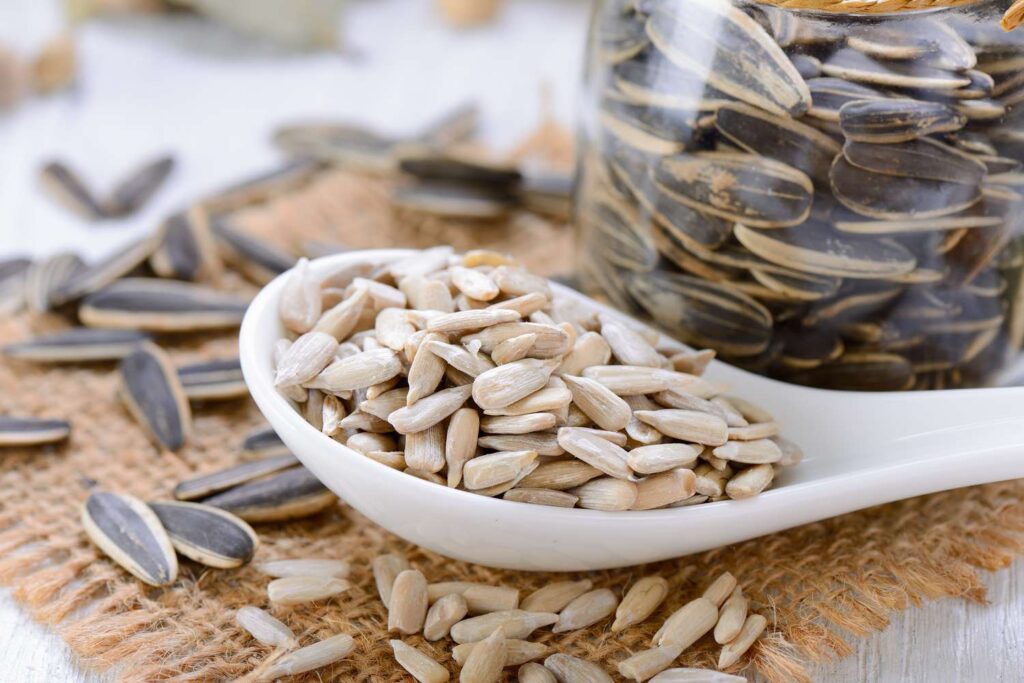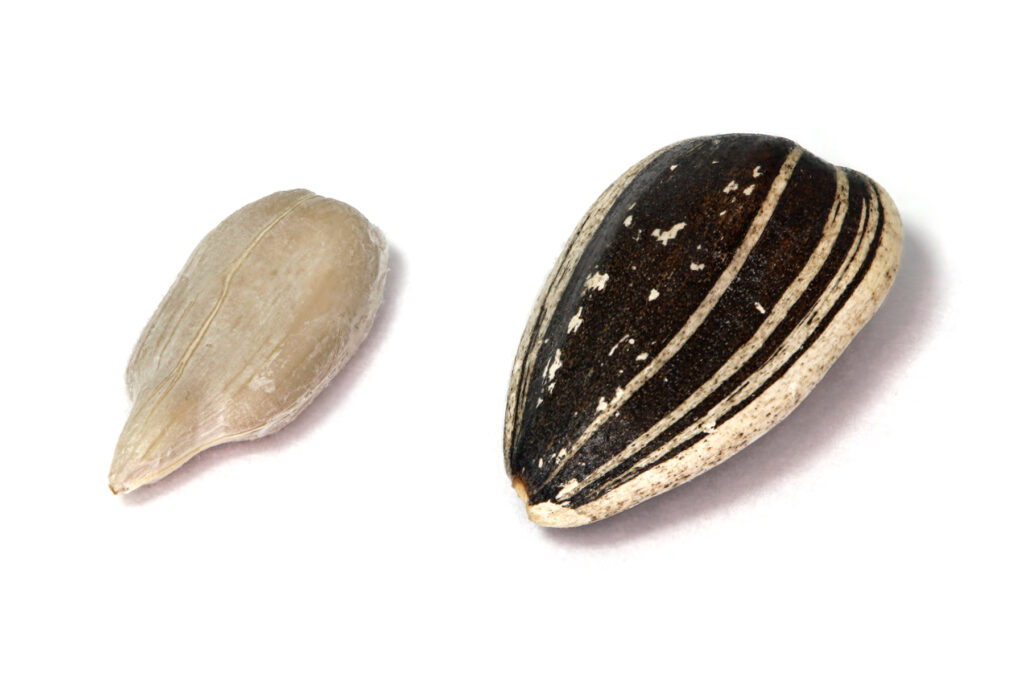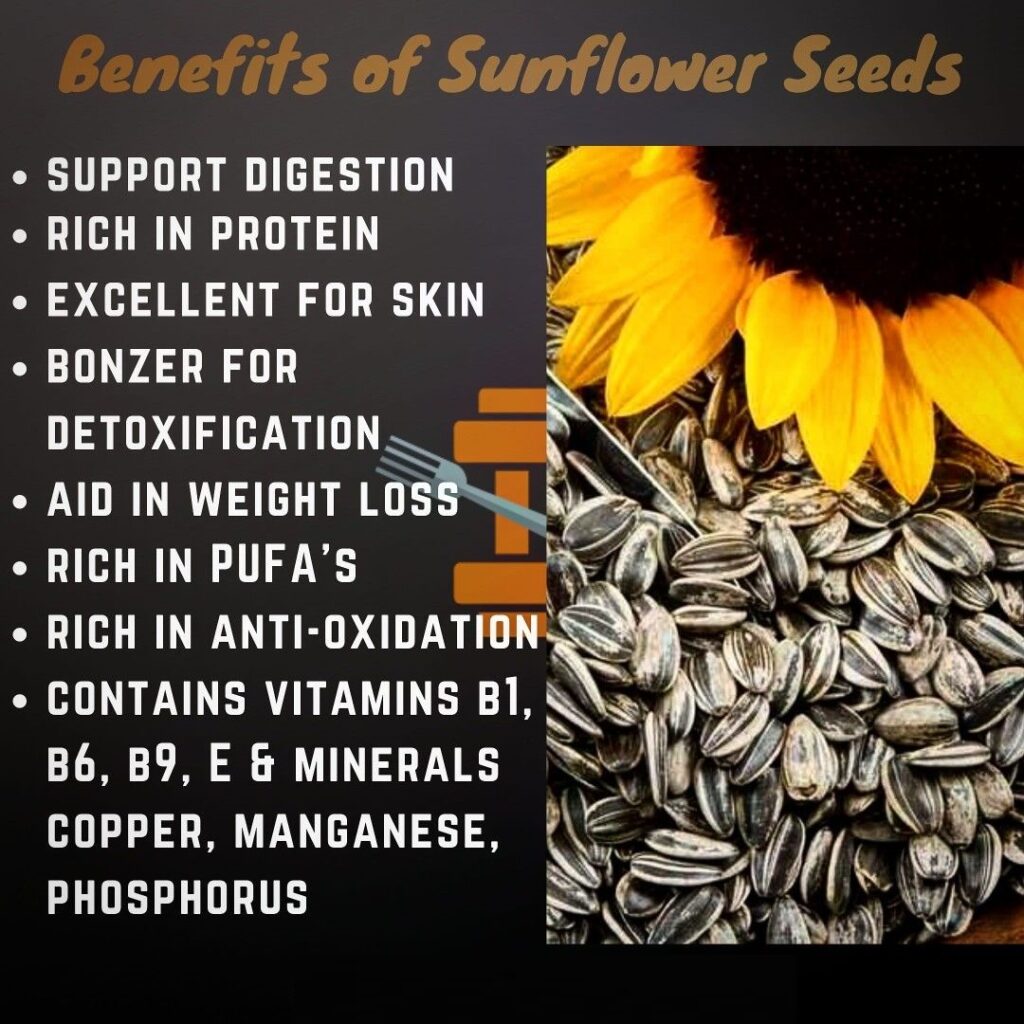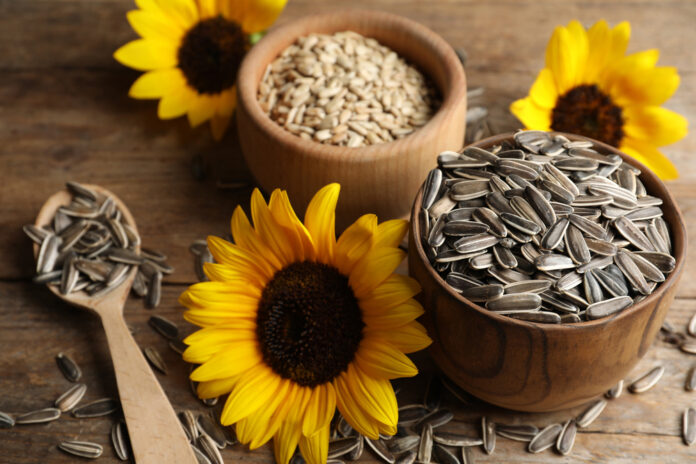INTRODUCTION

Sunflower seeds are the edible seeds of the sunflower plant (Helianthus annuus). They are commonly eaten as a snack or used as an ingredient in various dishes. The seeds are harvested from the large flower heads of the sunflower, which can grow to over 12 inches in diameter. Sunflower seeds have a mild, nutty flavor and are encased in black-and-white striped shells, though some varieties have solid black shells.
TYPES
There are two main types of sunflower seeds:
- Confectionery Sunflower Seeds: These are larger seeds typically sold for snacking and often roasted or flavored.
- Oilseed Sunflower Seeds: Smaller seeds primarily used to produce sunflower oil.
Nutrition Source
Nutritionally, sunflower seeds are a good source of:

- Healthy fats (mainly unsaturated fats)
- Protein
- Fiber
- Vitamins, such as vitamin E and B6
- Minerals, like magnesium, selenium, and zinc
HEALTH BENEFITS
Sunflower seeds are an excellent source of antioxidants like vitamin E, healthy fats, B vitamins, and copper and other minerals. They contain nutrients that fight cancer, lower your risk of heart disease, balance blood sugar, support thyroid health and lower inflammation. Here are some benefits of sunflower seeds.
Heart Health
Sunflower seeds are high in polyunsaturated fats, especially linoleic acid, which can help reduce cholesterol levels and lower the risik of heart disease. Magnesium in sunflower seeds helps regulate blood pressure and supports overall cardiovascular function.
Immune System
Sunflower seeds are a good source of selenium, a mineral that supports immune function by helping the body defend against infections and reduce oxidative stress. Zinc in sunflower seed, is essential for immune cell function and helps to regulate immune response
Prevents muscle cramps
Sunflower seeds are rich in several essential minerals. Two of them, magnesium and pantothenic acid, are great for keeping muscle cramps away.

Digestive System
Sunflower seeds are high in dietary fiber, which promotes regular bowel movements and supports a healthy digestive system by fostering beneficial gut bacteria.
Blood Sugar Control
The magnesium in sunflower seeds plays a role in regulating blood sugar levels by improving insulin sensitivity, which may help in managing diabetes. Protein and fiber in sunflower seeds slow down the absorption of sugar into the bloodstream, preventing blood sugar spikes.
Promotes Hair Health
The protein in sunflower seeds supports hair growth and repair. And vitamin E in sunflower seed helps improve scalp circulation, ensuring better delivery of nutrients to the hair follicles.
PCOS issue
Sunflower seeds can be beneficial for managing PCOS (polycystic ovary syndrome) due to their nutrient profile. Sunflower seeds are packed with essential nutrients like vitamin E, magnesium, selenium, and zinc, which are important for overall health and can help manage PCOS symptoms. The magnesium in sunflower seeds helps regulate blood sugar levels and may help balance hormones. This can be particularly useful for managing insulin resistance, which is common in PCOS.
Side Effect
While sunflower seeds are nutritious and offer numerous health benefits, overconsumption can lead to side effects. They are calorie-dense, which may contribute to weight gain if eaten in excess. Salted varieties can raise sodium levels, increasing the risk of high blood pressure. Some individuals may experience allergic reactions or digestive issues due to their fiber content. Additionally, sunflower seeds may contain trace amounts of cadmium, a heavy metal that could cause kidney damage with long-term consumption. It’s essential to enjoy them in moderation to avoid these potential side effects.




